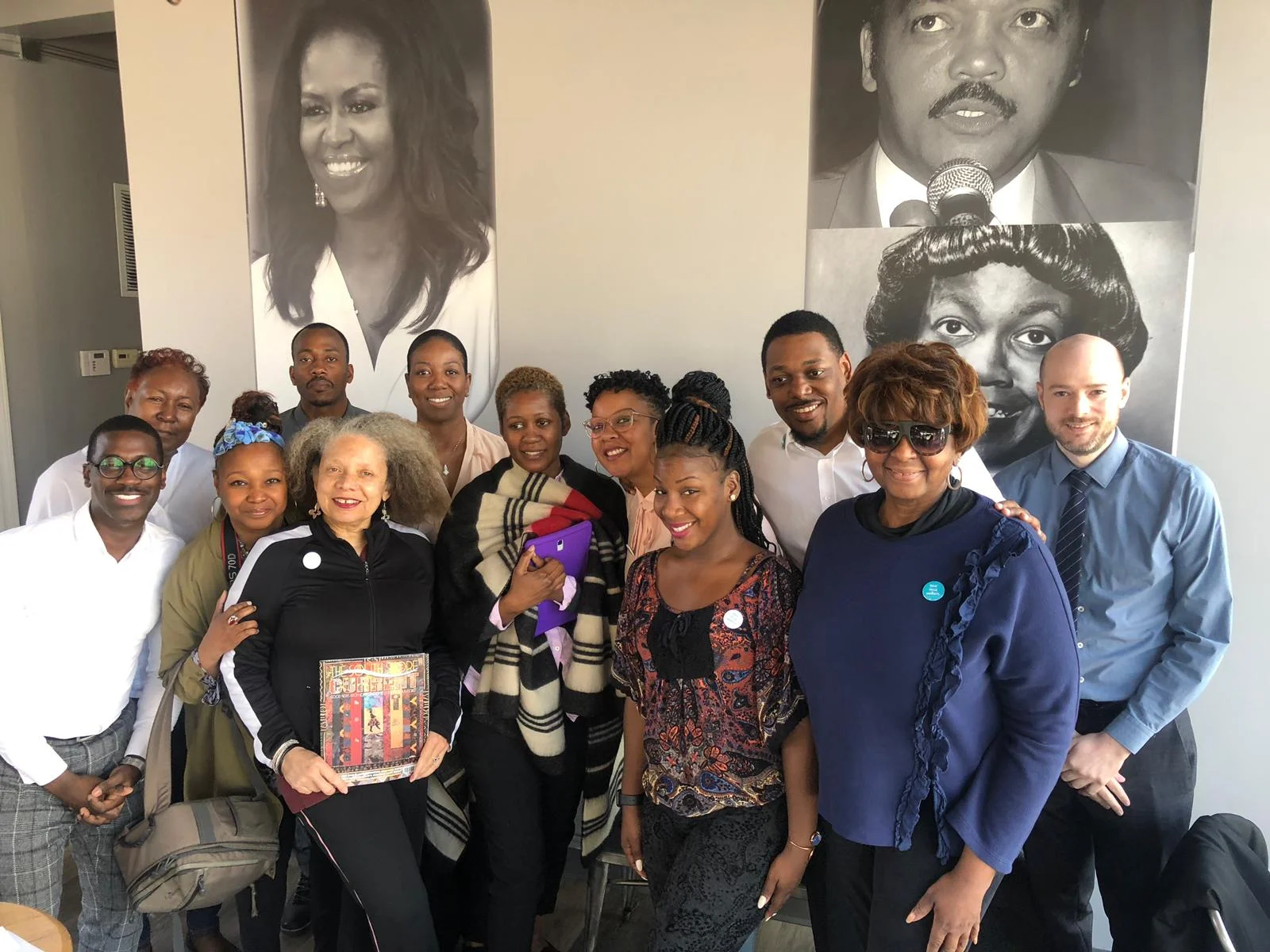Chicago Community Trust Brings City Together To Draft "Memos to the Mayor" Over Meals
Chanita and Herb Howard organized six On the Table events over two days for “Memo to the Mayor.” They partnered with neighborhood experts to serve as facilitators.
The Chicago Community Trust has long recognized the transformative power of people breaking bread together.
This month, it’s testing whether that power can extend to influencing citywide policy, too.
How it Started
For two decades, the foundation has been leading efforts to bring community members together to discuss important issues.
The effort started in the late 1990s, in the wake of the Rodney King riots, when The Trust played host to “Chicago Dinners”, which aimed to bring people from different neighborhoods and backgrounds together for a series of informal conversations about race relations.
In 2014, it formalized that effort with its first series of “On the Table” dinners.
On the Table encourages individuals and organizations across Chicago to play host to small gatherings that are designed to bring people together over dinner to talk about their communities and find common ground.
The Chicago Community Trust provides hosts with promotional materials and works with them to learn how to host and facilitate discussions.
On the Table initially had modest goals, says Daniel Ash, the Trust’s associate vice president of Community Impact.
When it started, The Trust expected only a couple of hundred people to take part.
Instead, more than 10,000 people throughout Chicagoland participated in the 2014 dinners.
And the effort has been growing ever since.
A Catalyst for Action
The Trust has turned “On the Table” into an annual event, usually held on the Tuesday evening after Mother’s Day.
At first, hosts (or “captains” of their tables, as they’re known) were local institutions, community groups or nonprofits. But soon, civically engaged individuals and their neighbors began signing up, too.
The Trust learned over time that Chicagoans who showed up to the dinners wanted the organization to be a catalyst for further action. As a result, it started organizing On the Table around an annual theme — with follow-up events and conversations around that theme each year.
“They don’t want to just talk about the concerns of the community or the needs of a neighborhood,” Ash says. “They want to use the platform as an organizing moment that leads to some type of direct or meaningful action.”
Advice for a New Mayor
This year, organizers noticed the dinners coincided with the historic inauguration of the new Chicago Mayor Lori Lightfoot, the city’s first openly gay, black and female mayor.
With that in mind, this year’s roughly 500 On the Table hosts focused their conversations around the creation of Memo to the Mayor. Each dinner gathering generated ideas from attendees for what they’d like Lightfoot to tackle in her first term.
About 500 memos have been submitted so far. And Lightfoot herself attended a few of the events.
Chanita Howard, the co-founder of ReCondition Community Cooperative, a community organization that works with the population living in the city’s south shore and greater Stony Island region, paired up with other community organizations in the region to organize a strategy around their “Memo to the Mayor” dinners, hoping to build momentum for work they were already doing.
They came up with six priority areas to be discussed: housing, environment, arts and culture, economic development, education and public safety.
Then, they went door to door, visited churches and used social media to get people to come to their dinners, where they paired the Mayor’s stated policy platform with their discussion topics.
“We were just very intentional,” Howard says. “It was still information conversation, but it allowed people to pick their priorities and then have a back-and-forth about it.”
For example, at Howard’s education-themed dinner, she led a conversation that talked about Lightfoot’s proposal to put a top-rated school in each neighborhood (known in the city as “level 1 and “level 1 plus” schools).
Howard’s group came equipped with data.
“We said, we don’t have any level 1 or level 1 plus high schools [in their neighborhood],” she said.
The leaders got together to do a final dinner to draft an official memo to Lightfoot over gumbo cooked by a local restaurant.
The memo included policy ideas for Lightfoot to address this issue: increase transparency in regional analysis reports of schools, and make sure there are in-person trainings for local school councils, to name a few.
Inspiration for a Neighborhood
Whether Lightfoot reads the south shore groups’ memos or not, Howard says the dinners were not only inspirational, but helpful in their work.
“What came out of it were things that we need to be accountable for ourselves. People felt like it gave them something to do, just by having that goal, they can unite with people,” she says.
“It is just always nice for people to have an opportunity to have their voices heard. You can see the shift in their positions physically, just based on when they are telling their stories and when they’re expressing their ideas to others, and just having people to validate those thoughts just in listening, it was really really powerful.”
A Growing Movement
The Chicago Community Trust’s “On the Table” has inspired other cities to host similar events.
In 2017, the John S. and James L. Knight Foundation took notice and helped 10 other community foundations start their own On the Table initiatives.
It recently released a report of lessons learned from the Chicago event.
In Chicago, the Trust’s leaders say they are flattered to have started the conversation.
Ash says he believes people from all walks of life genuinely want to bridge divides: “it’s not easy but there is a desire to transcend those wedges that have separated us, as Chicagoans and as Americans.”

